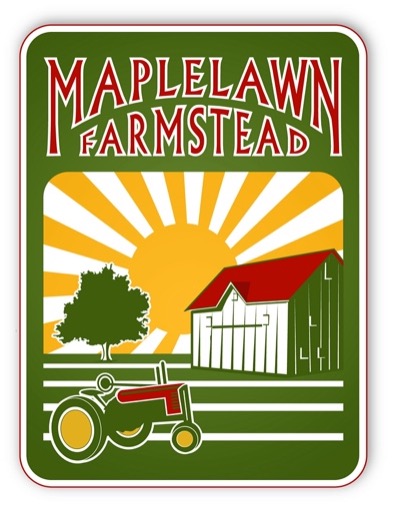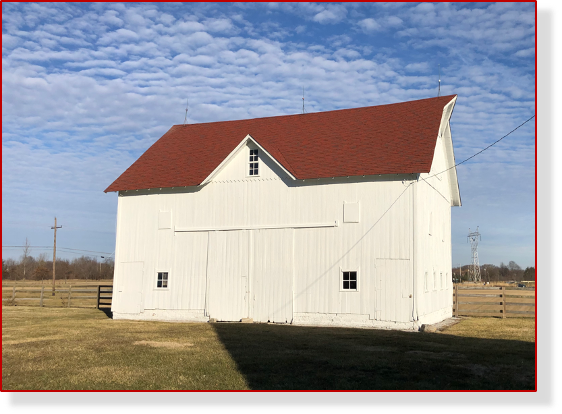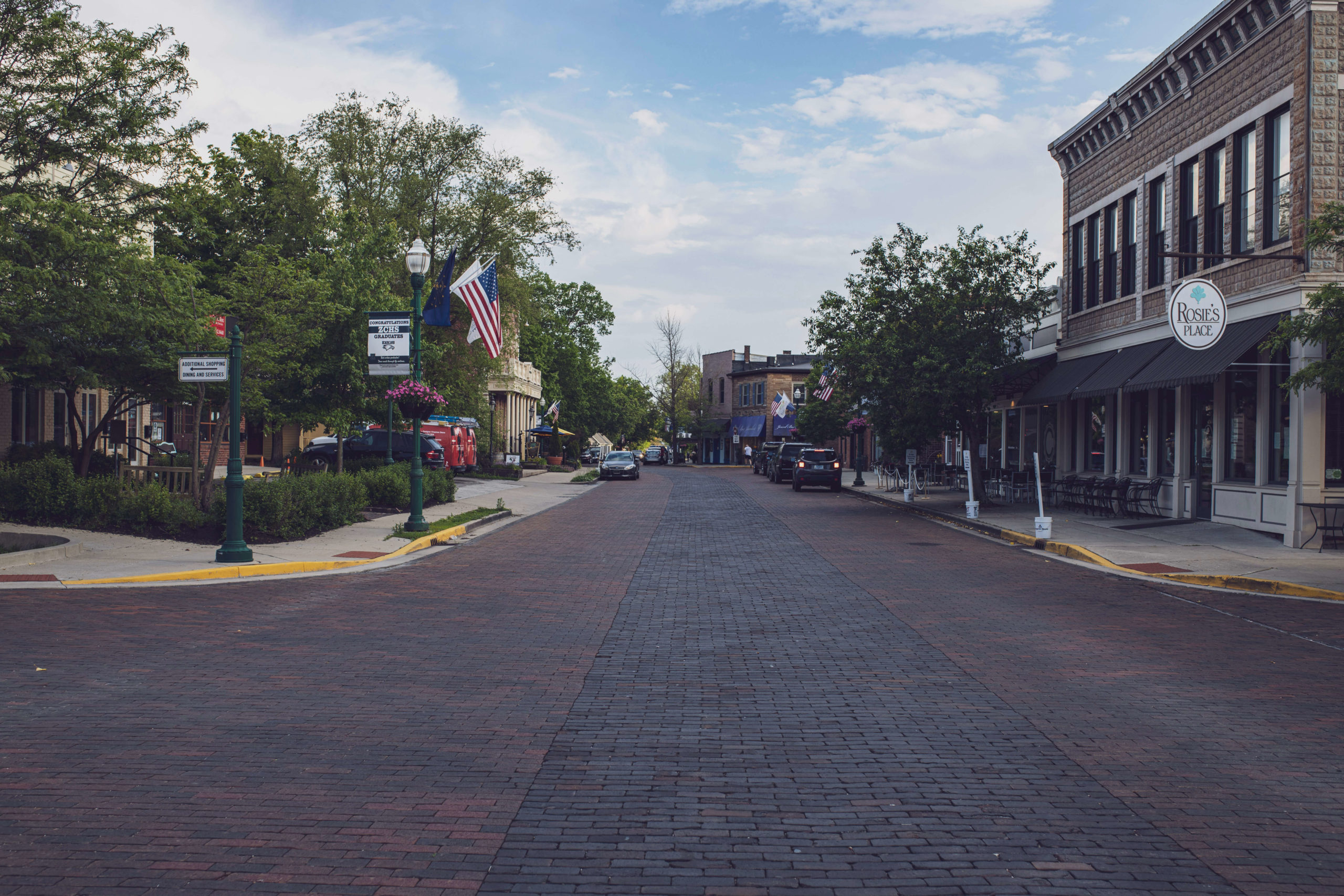Letter from VRA President – Heather Lusk
Letter from Town Council – Josh Garrett
Maplelawn Farmstead by Chris Garvey
Letter from President
May is one of the busiest months in Indiana, leading up to a certain race over the final weekend. Before then, days are filled with end of school tournaments, exams, dance recitals, and more.
As we discovered at our last VRA meeting, each weekend in Zionsville is full of activities:
May 7 is the Brick Street Market,
May 14 is the VRA porch party (if you’re a member you should have received an invitation),
May 21 is the opening of the Farmers Market – more information in next month’s newsletter.
Although I was able to clean a few gutters at the SullivanMunce on May 1, more help would be appreciated for a future weekend. If you’re able to assist please reach out to president@zvra.com.
We will be welcoming a student writer to the Village Voice to help with some stories this summer. Stay tuned for more info from her. For another internship opportunity, any student aged 16 and older can be part of Maplelawn’s beekeeper program – contact Indymw@gmail.com to learn more about the internship. Chris Garvey, president of the Maplelawn Farmstead board, shares the information about the location’s history this month.
Letter from Town Council
Our March meetings have been routine except for the first vote on the creation of a commission that would oversee any petitions to creation a conservation or historic district within all of Zionsville. While that one is of the most interest to many of these readers, I’m going to hold off commenting on it because it’s not yet complete. As an ordinance, it requires two votes, and as there are still questions to be answered it doesn’t seem right to post finalized thoughts on this matter until it has run through the full process. I will comment on my appreciation for everyone on both sides of this issue that have participated. It is not always the easiest thing to come to a public meeting and make your case for or against an issue, so kudos to you who did. Even those that chose not to, I always appreciate the points and comments that come in and help me ask better questions and make a more informed decision.
Switching gears, last year we consolidated the Street and Stormwater division with the Wastewater division under the guidance of Lance Lantz. He now serves as our DPW Superintendent and gave a very concise and interesting presentation on the current capacity of our sewer plant. The TL/DR of the presentation is that we have adequate capacity to handle, and eventually expand, our wastewater as we continue to grow. It is always a concern that new developments may be putting stresses on our infrastructure that cannot be easily handled. Mr. Lantz received an ovation at the end of our April 11th meeting in appreciation for his work on this capacity. If you want to see his entire presentation, it is available on the Town’s YouTube page by selection that same meeting.
Our April 18th meeting saw the Mayor deliver comments and answer questions related to our continued concerns about the financial system of the Town. While it has been frustrating with how long it has taken to start getting these answered, I’m hopeful it can improve as we continue to have public dialogue. I did have the opportunity to meet our new CFO (Kellie Adams) and was relieved to hear that she shares similar concerns with the lack of available information. I’m looking forward to working with her and getting some of this information published for the benefit of not only the Town Council but also for each of you.
While the warmth isn’t fully here yet, it’s creeping closer which makes me happy. I hope to start seeing each of you around Town and at various events including the start of the Farmer’s market.
Maplelawn Farmstead
I recently watched HBO’s “The Gilded Age”. The setting is based in 1882 New York City and centered around The American Gilded Age that extended roughly from 1870 to 1900. As I watched this HBO series, I couldn’t help but imagine what Indiana was like during this same time. While they were building “big fancy mansions” in New York, settlers were traveling west across the new country.
Imagine moving to Boone County in 1835 to start a farmstead – just 19 years after Indiana became a new state. John and Jane Wolf arrived from Tennessee and created an 80-acre land grant farm to raise crops, cattle and other animals. Nearby Zionsville was established in 1852 with arrival of the Indianapolis, Cincinnati and Lafayette Railroad.
By 1900 the Wolf heirs sold the farm to Alfred and Elmira Scott who maintained the farm until the 2000 death of Lester Bradley, surviving spouse of Scott heir Alyce Scott Bradley.
In 2003, the property was sold to the town of Zionsville to establish a community park (Mulberry Fields). The 40-acre parcel contained in the northwest corner the original farmhouse, along with an impressive array of several intact barns and outbuildings. This drew the interest of the Zionsville Historical Society. A committee was created to work with the Zionsville Parks Board to develop a plan to “preserve the farmstead”. In 2004, a plan for “Maplelawn Farmstead” was approved and a nonprofit 501(c)3 was created.
The organization was formed and got right to work. With the support from Indiana Landmarks, community historians the farmhouse and outbuildings were named a Historic District on the National Register of Historic Places by the National Park Service in 2011.
Maplelawn’s purpose is to “create experiences which connect people to the rich rural history of the 1930s depression era on an Indiana family farm”.
Maplelawn’s “Great Depression” focus is primarily based on two elements: 1) the farmstead’s buildings and farmhouse are all pre-1930 and provide an excellent opportunity for consistent preservation and restoration projects to that period, and 2) programming, events, and artifacts (household items, furniture, farm implements and tools) are still available to complement the 1930s theme.
The all-volunteer board plans special events, educational and fund-raising activities, develops and spearheads various preservation and period appropriate landscape and garden projects (yes- we have dahlias!). All operating and renovation expenses are raised by special events, sponsorships, memberships, gifts, and grants.
The opportunity to preserve the farmstead with a network of community, service clubs, and businesses has enabled progress in restoring and preserving a historic farmstead complex, creating a beautiful park space and an asset for the public.
We have invested hundreds of thousands of dollars in improvement projects for the barns and farmhouse (from the foundations to the roof tops) and continue to develop the grounds and gardens. Local photographers appreciate the farm as we think we are a popular spot for wedding and senior pictures!
Special events examples include Spring Tea, Movie Nights (films shown outdoors on the barn) Boone County Tractor Club rallies, a fall Harvest Market (unique local craft vendors), and we serve as base for “Maplelawn Harvest 50” an off-road 50 mile bicycle race.
In 2021, we started a collaboration with the Zionsville Parks Department called “Barns and Brews”. The events highlight a different speaker and local brewery, all within the setting of the farmstead
May is the National Historic Preservation Month. This month celebrates the nation’s heritage through historic places.
Maplelawn celebrates and is grateful for the support and collaboration of hundreds of volunteers in the community: Zionsville Kiwanis, Lions and Optimist Clubs, 4H Flying Eagles, Girl and Boy Scout Troops, Zionsville Garden Club, Master Gardeners, Questers, Zionsville Community school groups, local businesses, and volunteers (and the Boone County Economic Development Corporation) and the National FFA groups, state and local beekeepers (to name a few) have all gotten involved over the years to help Preserve, Educate and Inspire.
If you want to learn more or get involved at maplelawnfarmstead.org



